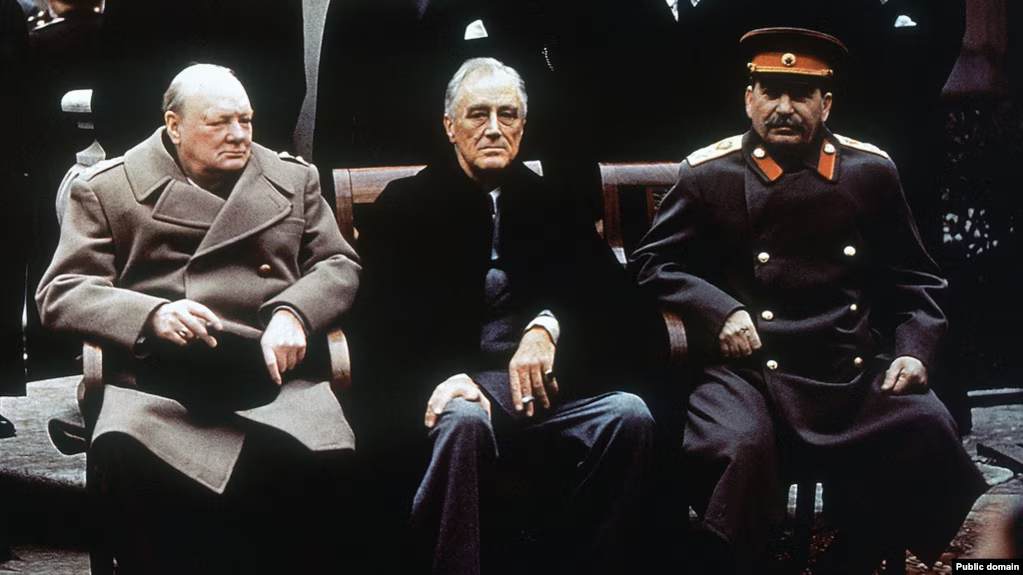Earlier this summer, an Australian friend called to congratulate me on my “OBE.” Puzzled, I asked, “What on earth do you mean?” He replied, “I noticed in the newspaper’s birthday column that you are now Over Bloody Eighty.”
He was right. On 12 May, I celebrated my 80th birthday. Curious about the historical significance of this date, I discovered that during that same weekend in 1944, Soviet troops forced the German army to withdraw from Crimea as they steadily reversed the gains made by the Nazis in Russia and Central Europe earlier in the war.
As luck would have it, these events are the focus of my close friend Jonathan Dimbleby's recent book Endgame 1944: How Stalin Won the War. While some may view praising a friend’s work as in poor taste, it would be a far greater mistake to overlook this exceptional book just because of our friendship.
Dimbleby, a distinguished British journalist, has established himself in recent years as one of the foremost historians of World War II. He has written extensively on the 1942 Battle of El Alamein, warfare in the Atlantic, and Adolf Hitler’s invasion of the Soviet Union.
In his latest book, Dimbleby turns his attention to the pivotal events of 1944. His narrative masterfully weaves together the bloody battles of that year and the high-stakes diplomacy that helped maintain the Allies’ unity and ultimately shaped the postwar global order.
As the Soviets drove the Wehrmacht out of the territories it had just conquered, they were repeatedly aided by Hitler’s disastrous decision-making. But their hard-won victories can be largely attributed to their overwhelming numbers and the heroism of their soldiers.
After the Normandy landings in June 1944, with Hitler’s forces stretched thin on two fronts, the Germans found it even more difficult to overcome the Soviet Union’s demographic advantage. The sheer size of the Soviet army, deployed with little regard for casualties, ultimately overwhelmed the Nazis.
Dimbleby vividly captures the war’s devastating toll through the harrowing accounts of both soldiers and civilians. His portrayal of the Nazis’ systematic slaughter of Polish and Hungarian Jews, along with the destruction of Warsaw and Budapest – once-radiant exemplars of European civilization, tragically reduced to rubble – is particularly haunting.
Meanwhile, the Soviet military’s tightening grip over much of Europe, together with US President Franklin D. Roosevelt’s belief that a postwar order could be built on a grand bargain between American democracy and Soviet communism, allowed Stalin to gain the upper hand in his negotiations with the United States and the United Kingdom.
Roosevelt's belief that a post-WWII order could be built on a grand bargan between American democracy and Soviet communism allowed Stalin to shape the post-war international order
UK Prime Minister Winston Churchill’s concerns about Roosevelt’s naiveté were dismissed by many Americans, who believed that the British were more interested in preserving their global influence than in fostering international cooperation.
We all know what happened next.
Roosevelt succeeded in establishing the United Nations, but at the price of accepting a Soviet veto in the Security Council and the subjugation of Central and Eastern European countries that, having been liberated from German occupation, were absorbed into the Soviet empire.
This enabled Stalin to shape the postwar international order and set the stage for the Cold War, which ultimately ended peacefully when the inherent and unsustainable weaknesses of the communist regime met strong US leadership.
Today, for the first time since Mikhail Gorbachev’s reforms appeared to promise a future of peace and closer ties on both sides of the crumbling Iron Curtain, Europe’s stability is threatened by Russian imperialist ambitions.
Today, for the first time since Gorbachev's reforms, Europe's stability is threatened by Russian imperialist ambitions.
While Russian President Vladimir Putin and his supporters claim that NATO’s expansion provoked the full-scale invasion of Ukraine in 2022, the fact is that the Kremlin was equally hostile to the European Union’s enlargement, despite the EU posing no military threat to Russia’s borders.
But the key lesson from the West’s efforts to contain Soviet expansionism is that the only way to deter totalitarian thugs like Putin is to confront them when they overreach. Had Western democracies responded more forcefully to Russia’s 2008 invasion of Georgia or its 2014 annexation of Crimea, Putin, recognizing the West’s steadfast commitment to defending freedom and security, might have avoided further escalation.
It is not too late to prevent Putin from following in Stalin’s footsteps. The first priority must be to continue to stand firmly behind Ukraine.
Copyright: Project Syndicate. This article was published by Project Syndicate and has been republished by Euromaidan Press with permission.
Editor's note. The opinions expressed in our Opinion section belong to their authors. Euromaidan Press' editorial team may or may not share them.
Submit an opinion to Euromaidan Press
Related:

